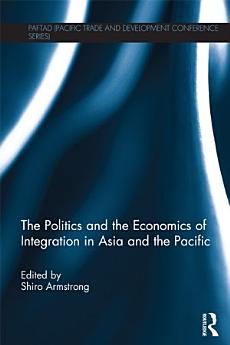The Politics and the Economics of Integration in Asia and the Pacific
About this ebook
While geopolitics influences international economic integration, so too does domestic politics. Economic integration in Asia has been driven by rapid unilateral trade and investment liberalization and, while trade and investment patterns have been determined largely by comparative advantage, political forces have also affected patterns of economic interdependence. The form that regional institutions take, and their effectiveness, also depends on political relations between countries. The particular circumstances in Asia, and the relationships between regional economies has profoundly shaped regional institutions and will continue to do so.
The chapters in this volume draw on papers originally presented to the 33rd Pacific Trade and Development Conference held in Taipei in 2009 to look in original ways at how politics shape economic integration and its various dimensions in Asia and the Pacific and globally.
About the author
Shiro Armstrong is a Research Fellow in the Crawford School of Economics and Government at the Australian National University and is currently an Australian Government Endeavour Research Fellow and the Gary Saxonhouse Prize Visiting Fellow to the Center on Japanese Economy and Business at Columbia University. He is co-editor of the East Asia Forum.





